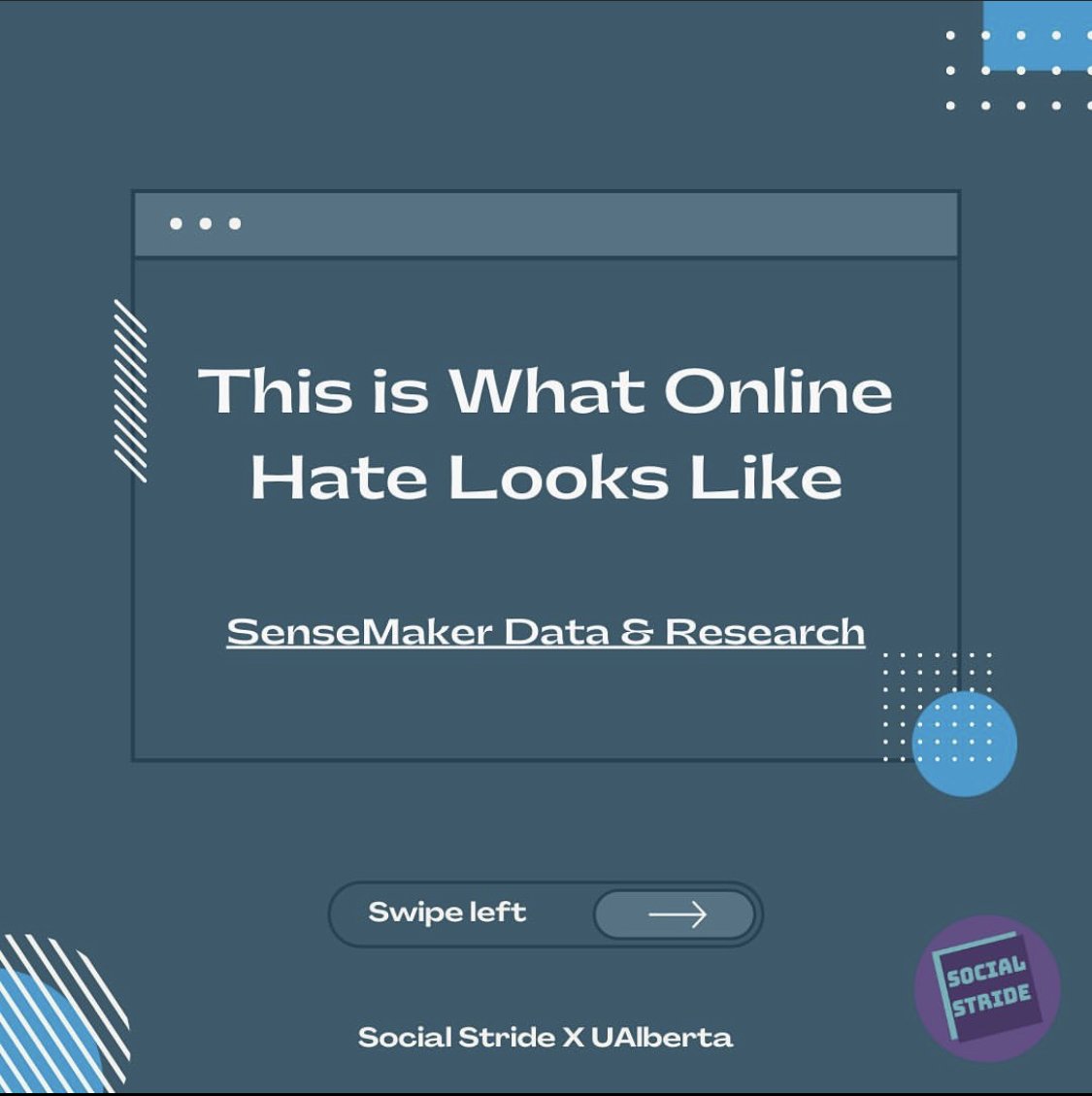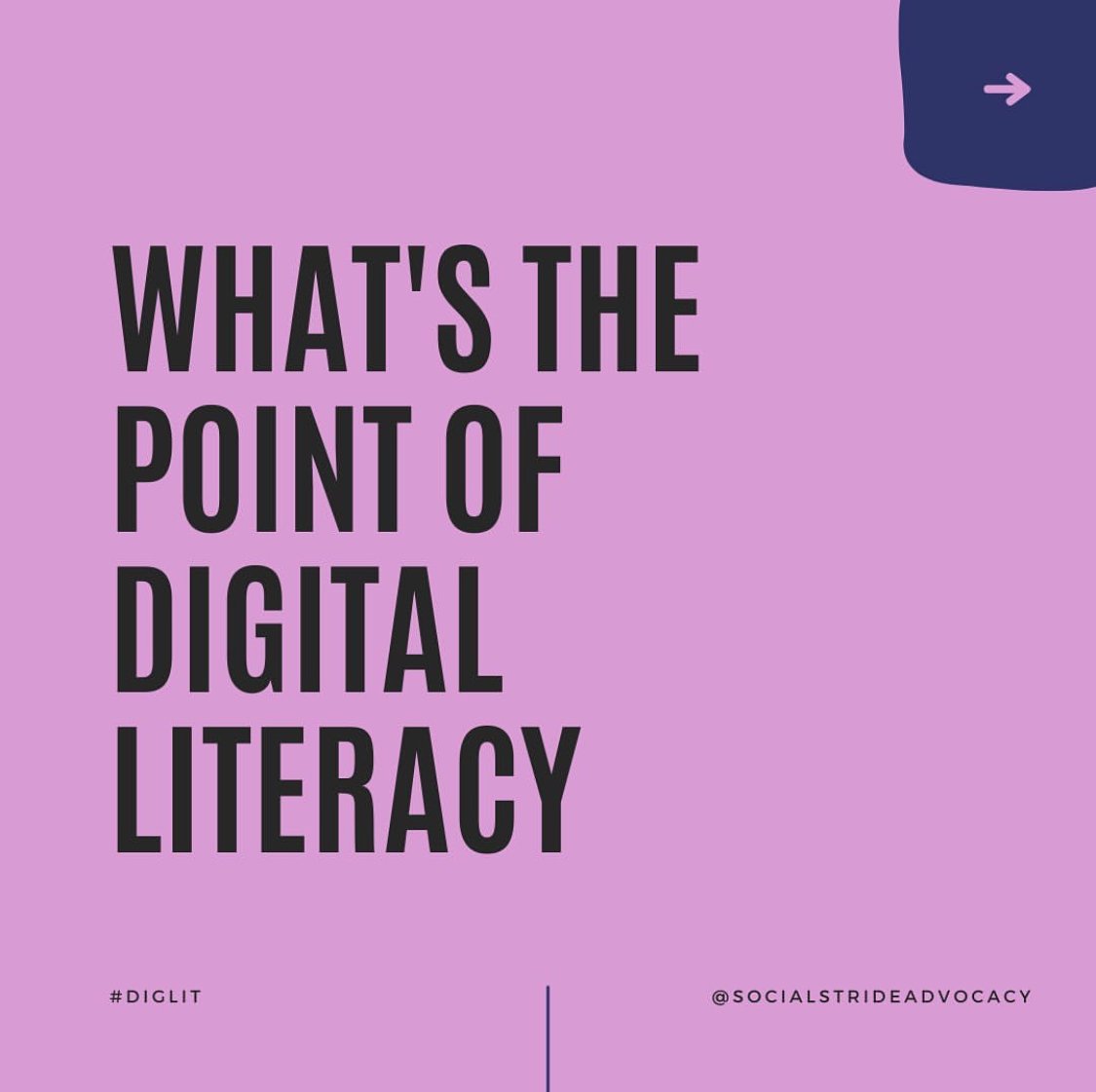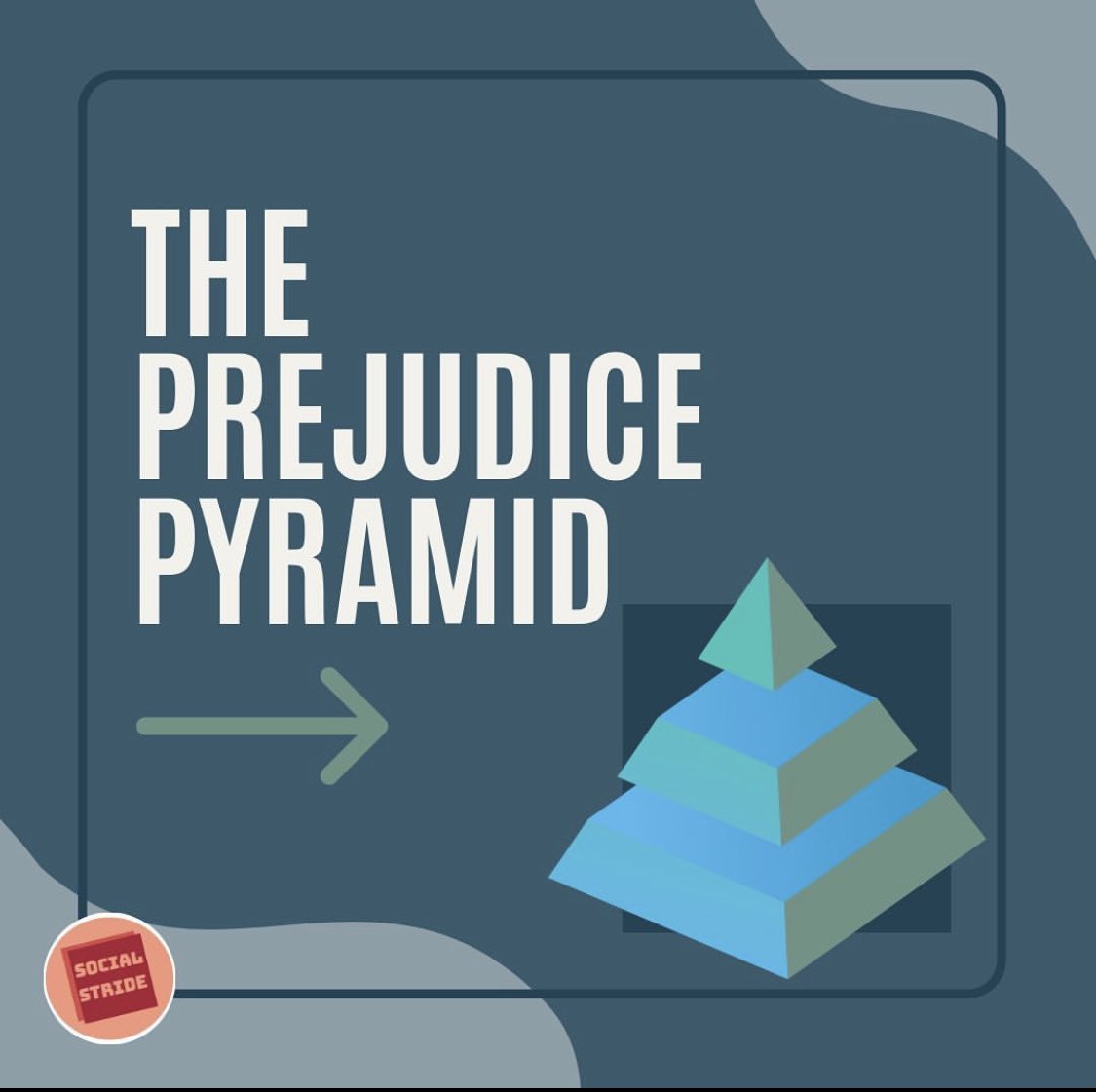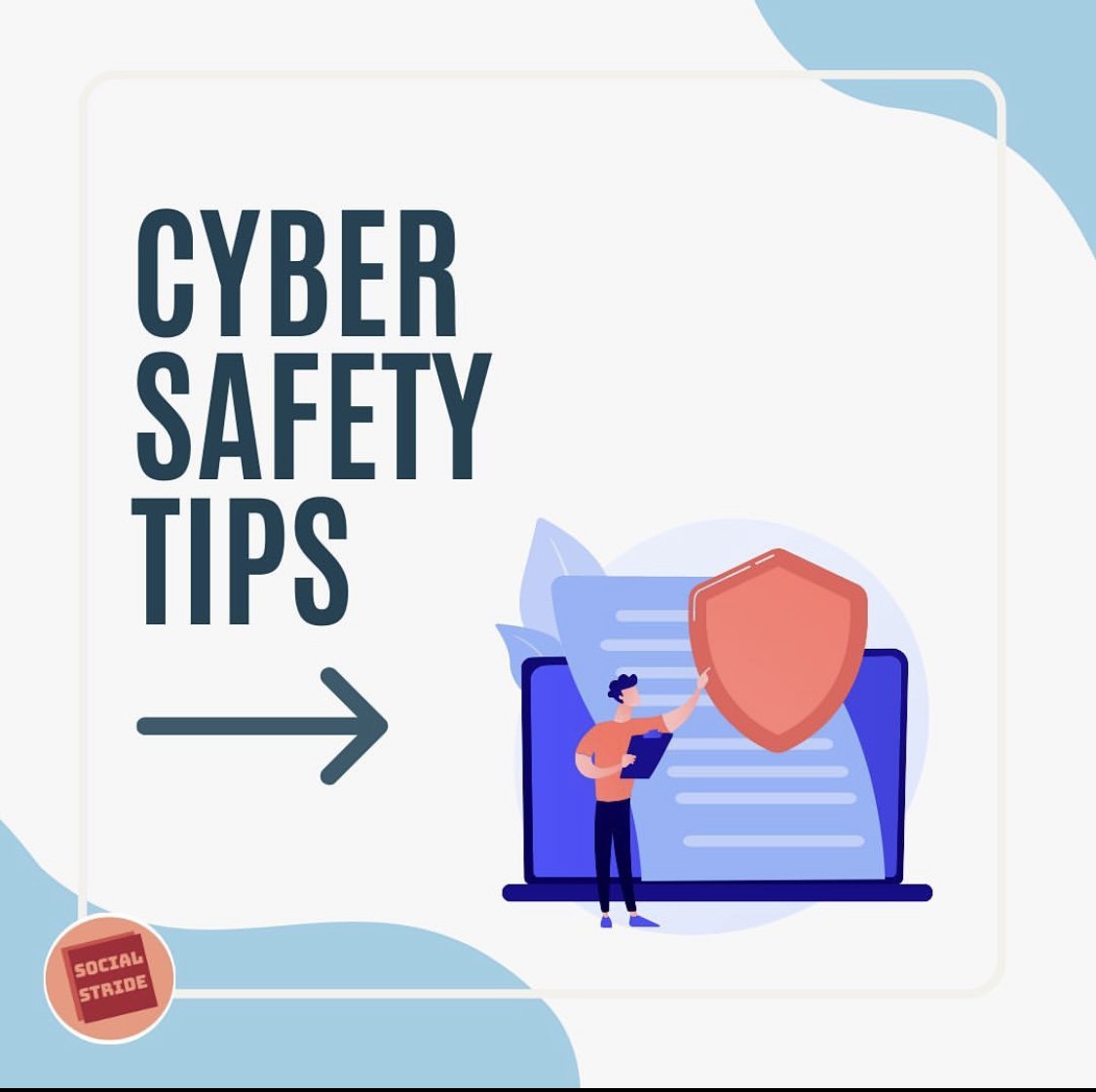SOCIAL STRIDE
Digital Literacy Training
Digital Literacy Series to Address Online Racism and Discrimination
-
Discrimination Online 101: The Foundations
In this session, participants will gain an understanding of discrimination and the forms it takes in social media platforms. Basic definitions used in Canadian legislation will be shared as well as an introduction to the possible mechanisms to address discrimination. The aim of this session is to provide participants with basic strategies and tools to identify and respond to online identity-based disinformation and misinformation.
Session Length: 1 - 1.5 hours
Audience: all agesDiscrimination Online 102: Methods and Tools
The average Canadian spends over six hours on the internet every day, whether that is on phone apps or different websites, both at work and during our free time. As the intersections between online and offline spaces increase, it is important to get more familiar with the many ways discrimination manifests in all these online, offline and hybrid spaces we live in nowadays. This session digs into the ways our offline and online social lives intersect and how discrimination manifests within those intersections. Participants will explore how identity-based mis/disinformation appears in offline and online spaces and also how it relates to hate incidents and crimes. We will also share and practice with different methods and tools to address those issues, including bystander interventions and self check-ins.
Session Length: 2 hours
Audience: young adults and adults (16 and above)
-
Digital Literacy 101: Online Safety Tips & Tricks
Technology is a daily part of children and youth’s lives, and while they often have expertise in the online world, they don’t always know the potential dangers there. This session, designed for children and teens 15 and under, builds a foundation of the importance of digital literacy, which includes the ability to use and understand the information they may be seeing online. Participants will gain age appropriate knowledge on the different types of online issues and their impacts and best practices in engaging in online content that may be challenging to deal with, including methods of looking for support with trusted adults and methods for keeping themselves safe while online.
Session Length: 1.5 hours
Audience: children and teens (15 and below)Digital Literacy 102: Healthy Social Media and Gaming Interactions
Young adults have a heavy online presence and many are reaching important personal milestones where their online presence could heavily impact their professional endeavors. In this session, participants will be introduced to the concept of digital literacy and to common cyber issues that young people may fall into while actively responding to discrimination online. Participants will gain tools to check their readiness to engage with difficult topics online, decide when they need support, and easy instructions on how to report harmful profiles/comments to social media and game platforms. The session is grounded on the understanding of the importance of a social media presence for younger generations and the effects of discrimination online. Young adults will gain skills on what to do when they encounter discrimination online and discuss our shared responsibility to creating safer spaces online.
Session Length: 1.5 hours
Audience: young adults (16 and above)Digital Literacy 103: How to Discuss & Advise Youth on Discrimination Online
Whether you’re a parent, guardian, teacher, or support worker, adults worry about what youth are looking at online, how they are interacting with others, what they are exposed to and how adults can support young people when they face discrimination online. In this session, participants will develop a deeper understanding of the shape and relevance of online activities youth engage in, access to tools that support adult engagement to have conversations and guide safer internet use, and build capacity to engage with mechanisms to report online hate or discrimination in both online games and social media.
Session Length: 1.5 - 2.5 hours
Audience: intermediaries (parents, guardians, teachers, support workers)Digital Literacy 104 Peer-to-Peer Support: How to Bring up and Support Friends Facing Discrimination Online
Young people are usually the first ones that hear about the difficult experiences that their peers might be facing online. It is vital to give them the tools to identify the issues their peers are facing, name them, and provide basic resources and tools to protect themselves while supporting others in reporting or responding to the issue. Young people will be invited to articulate the importance of online interactions in their lives, share the safety tricks they use to learn from each other and from facilitators, and to strengthen their capacities, and tools to interact online in safe and responsible ways. Participants will understand the definition of hate and discrimination online and practice identifying some of the online forms that hate and discrimination take in online spaces, such as social media and gaming.
Session length: 2 hours
Audience: High school and youth leadersDigital Literacy 105: The Tricky Case of Misinformation and Discrimination Online
For the last several years, the online world has been in a “golden age” of misinformation and disinformation online. With the increase in things like artificial intelligence, complex algorithms, and content farms, it’s essential that all Canadians, especially young ones, gain a greater understanding of how misinformation and disinformation manifest and spread online. In this session, participants will examine examples of mis/disinformation in the style of a detective investigation.
Session length: 2 hours
Audience: High school and youth leadersDigital Literacy 106: Managing Public Webpages
We often take management and moderation of online spaces for granted without being aware of the unique challenges those managing those spaces may face. This session will guide participants through some of those unique challenges and set up a path for building a structure around addressing complex issues online. Participants will gain tips and tools on establishing policy and protocols for moderating and managing online spaces and following through on challenging issues to create safer, more welcoming online spaces.
Session Length: 1.5 hours
Audience: For people managing and moderating online spaces
-
Being an Active Witness
At times when racism, discrimination or misinformation occurs, being an active witness can help save lives and reduce the risk of a negative outcome. In this session, young people and adults will learn strategies to support others who are being targeted with discrimination online. The aim is to learn de-escalation tactics including how to respond to victims/perpetrators of online discrimination and ensuring users have a healthy relationship with social media. This session highlights the importance of prioritizing your personal safety and discusses identity and how it intersects with the act of witnessing and supporting people being targeted by discrimination online.
Session Length: 2 hours
Audience: High school and adults -
Challenging our Story of Canada
Through an exploration of different historical moments that speak to the exclusion of groups of people, participants will engage in a social analysis and dialogue on formation of social and economic structures within the country. This activity will lay the groundwork for a discussion about our diverse histories and how they manifest in our relations and present themselves online today. We will explore and reflect on anti-oppressive principles and assess our own unique positionalities within the communities we live within.
Session Length: 1 to 1.5 hours
Audience: High school and adults










